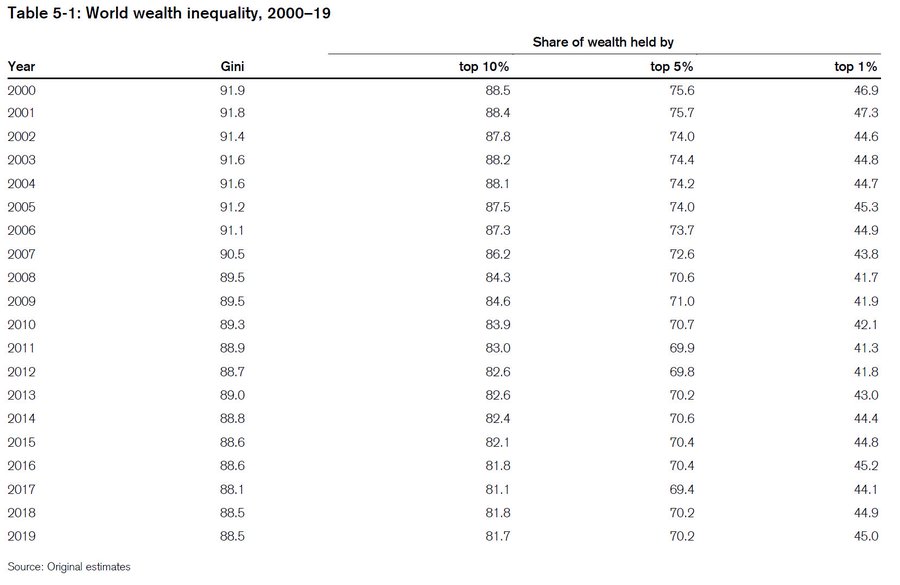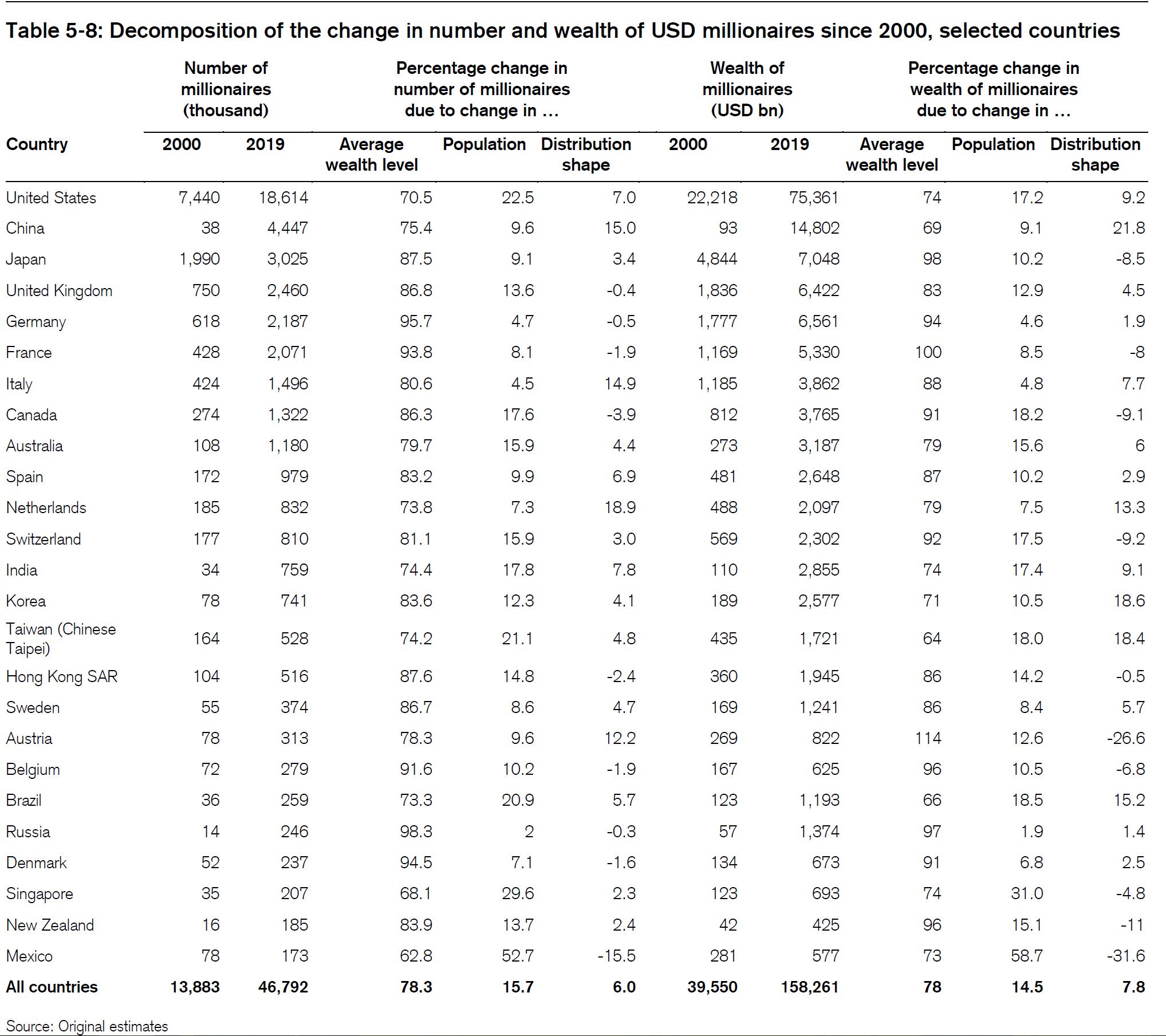And every January, Oxfam comes out with a The Sky Is Falling And Inequality Is Terrible gloss on the Credit Suisse figures. If you were teaching a How To Lie With Statistics course, the Oxfam reports would provide excellent fodder.
So, a few highlights from the Credit Suisse report, so we don't forget them come January when the Oxfam report comes out.
The report is here.
First up, New Zealand's place in the global wealth inequality figures.
(And here's a static version in case the interactive doesn't work)
There are 172 countries with a Gini coefficient on wealth. New Zealand's Gini (in red) is the 37th lowest.
Among the countries with more wealth inequality than New Zealand, in order starting with countries closest to us: Portugal, Iceland, Spain, France, Switzerland, Canada, Austria, Finland, Ireland, Norway, Denmark, the US, Sweden and the Netherlands.
Global wealth inequality has been dropping, more or less, since 2000.
And they also decompose changes in the number and wealth of millionaires. You can get more and wealthier millionaires if all incomes rise, if population increases, or if the shape of the underlying distribution changes to favour millionaires. Here we see that since 2000, changes in the shape of the distribution have resulted in our millionaires having less wealth than otherwise.
And this year's Gini is down on last year's as well.
If I were Oxfam and wanted to put up a scare story about inequality out of this, but one grounded in the numbers rather than just being fantasy, I'd look hard at how much of the measured reduction in inequality is driven by changes in housing wealth. Recall that housing is a substantial part of the wealth portfolio of those in the middle wealth deciles, and that increased houses prices do more to boost wealth in the middle than at the top. But there can be strong disparities between homeowners and non-owners. That's a story of anticompetitive housing regulation set by councils under incentives set by central government rather than one about evil rich people and the need for income redistribution.




No comments:
Post a Comment